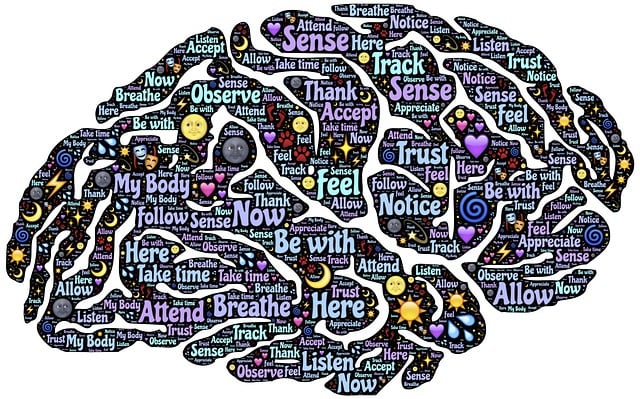For young adults navigating adulthood's challenges, prioritizing self-care is vital. Facing pressures from education, careers, and personal expectations can lead to mental health issues like stress, anxiety, and depression. Therapy for young adults with relationship problems offers safe spaces to explore emotions, work through trauma, and boost self-esteem. Incorporating techniques like cognitive-behavioral therapy (CBT) and mental wellness coaching, alongside mindfulness practices and regular exercise, fosters resilience and overall well-being. Public awareness campaigns and professional guidance further support young adults in building sustainable self-care routines to navigate life's complexities.
Self-care is an essential practice for young adults navigating the complexities of personal growth and relationship dynamics. Understanding its importance is the first step towards a healthier, happier life. This article explores strategies to enhance self-care routines, addressing relationship issues through therapy techniques tailored for young adults. By recognizing the interplay between relationships and mental health, individuals can build sustainable practices that foster long-term wellbeing. We delve into effective approaches, offering insights for those seeking to prioritize their mental health and cultivate fulfilling relationships.
- Understanding the Importance of Self-Care for Young Adults
- Recognizing and Addressing Relationship Issues in Self-Care Routines
- Incorporating Effective Therapy Techniques for Personal Growth
- Building a Sustainable Self-Care Practice for Long-Term Wellbeing
Understanding the Importance of Self-Care for Young Adults

For young adults navigating the complexities of adulthood, understanding and prioritizing self-care is paramount for overall well-being. This demographic often faces unique challenges such as balancing education or early careers with personal expectations and relationships. As a result, stress, anxiety, and depression can significantly impact their mental health. Self-care isn’t just a luxury; it’s a necessary practice to foster resilience and promote healthy coping mechanisms.
Therapy for young adults addressing relationship issues plays a crucial role in self-care development. It provides a safe space to explore personal feelings, enhance self-awareness exercises, and work through any trauma or emotional challenges hindering their sense of self-esteem improvement. Mental wellness journaling exercises and guidance can also be powerful tools, offering an outlet for processing thoughts and emotions while encouraging mindfulness and reflection.
Recognizing and Addressing Relationship Issues in Self-Care Routines

Many self-care practices focus on physical well-being, but overlooking mental health and relationship issues can hinder overall wellness. Young adults, in particular, often face unique challenges that require specialized attention, such as navigating college pressures, career uncertainty, and identity formation. These experiences can lead to unaddressed relationship issues, which, if left untreated, may escalate into more significant problems.
Seeking therapy for young adults experiencing relationship issues is a crucial step towards integrating Mental Health Awareness into daily routines. Professional counselors provide safe spaces to explore conflict resolution techniques, fostering healthier interactions and communication. By learning Stress Reduction Methods, individuals can better manage their emotional responses and create a more balanced self-care routine. This proactive approach ensures that every aspect of one’s life receives the care it deserves, ultimately leading to improved overall well-being.
Incorporating Effective Therapy Techniques for Personal Growth

Incorporating effective therapy techniques is a powerful tool for personal growth, especially among young adults navigating relationship issues. Therapy provides a safe space to explore emotions, gain insights into behaviors, and develop coping strategies. For instance, cognitive-behavioral therapy (CBT) helps individuals identify negative thought patterns and replace them with healthier alternatives, thereby improving their emotional well-being. This technique is particularly beneficial for managing anxiety and depression, which are prevalent among young adults.
Additionally, mental wellness coaching programs emphasize building resilience, boosting confidence, and fostering self-acceptance. These programs encourage clients to set personal goals, provide strategies for stress management, and offer ongoing support. By combining therapy techniques with coaching, young adults can enhance their mental health, improve relationships, and develop the skills needed to thrive in their personal and professional lives. This holistic approach ensures a comprehensive understanding of one’s emotional landscape and equips individuals with the tools to overcome challenges.
Building a Sustainable Self-Care Practice for Long-Term Wellbeing

Building a sustainable self-care practice is essential for long-term wellbeing, especially for young adults navigating life’s challenges. It’s about creating healthy habits that nurture both mental and physical health, offering crisis intervention guidance when needed. By incorporating regular activities like mindfulness meditation, exercise, or creative outlets, individuals can enhance their resilience and develop a stronger sense of self-worth. These practices not only serve as a confidence-boosting mechanism but also foster better relationships by improving communication and emotional regulation skills.
Public awareness campaigns development around self-care is crucial in promoting these habits from an early age. Education on recognizing signs of burnout or relationship issues can empower young adults to take proactive measures, ensuring they have the tools to maintain their mental health. A consistent self-care routine, supported by professional guidance when required (such as therapy for young adults with relationship problems), forms a vital part of navigating life’s complexities and promotes overall wellbeing.
Improving self-care practices is a holistic journey that empowers young adults to thrive. By understanding the importance of self-care, recognizing and addressing relationship issues, incorporating effective therapy techniques, and building sustainable routines, individuals can achieve long-term wellbeing. Integrating these strategies, including therapy for young adults that targets relationship issues, fosters personal growth and resilience, ultimately enhancing overall mental health and quality of life.













